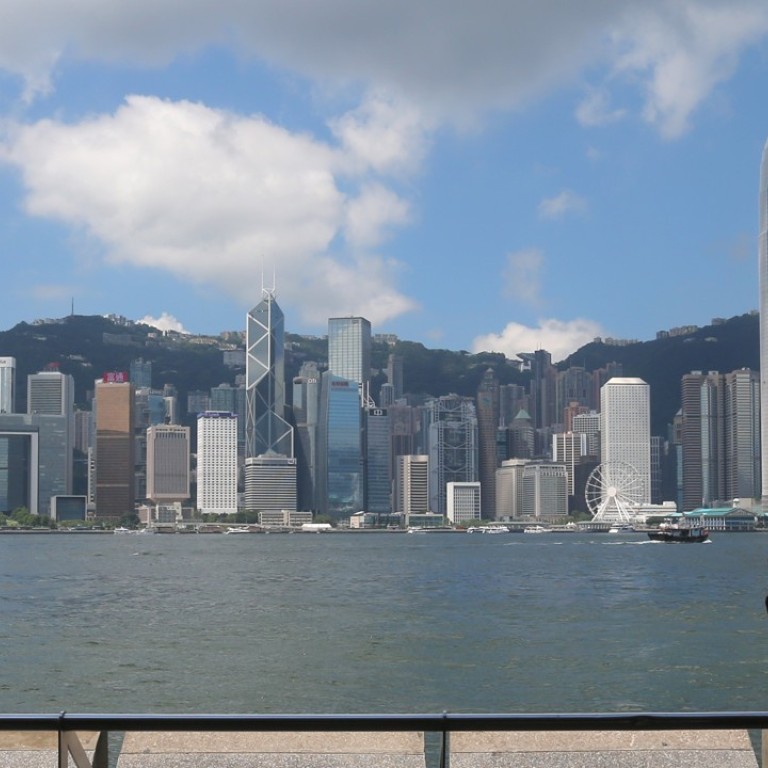
Letters to the Editor, June 17, 2017
Generated heat is the main climate culprit
Inaction on reducing carbon emissions may not be so bad based on a new interpretation of Hong Kong’s climatic record 1884-2016. Hong Kong’s best course of action for its 7.3 million population, or 0.1 per cent of the world’s total, is to reduce heat generation which directly affects temperature.
The temperature record of the Hong Kong Observatory’s headquarters is strongly influenced by human-induced heat yet there is a 17-year pause in temperature rise from
1998-2015.
Winter cold days at the Observatory’s headquarters station (urban) is appreciably lower than the Pak Tam Chung station (rural).
Wind speed at the King’s Park station has declined sharply compared to Waglan Island station because of high-rise building development within Victoria Harbour.
Mean annual temperature difference between the Observatory’s headquarters station and the Waglan Island station is greatest during the 1990s.
This is explained by heat-generation caused by infrastructural development, including the West Kowloon reclamation.
Kai Tak airport closing and Hong Kong International Airport opening in July 1998 shifted the airport-generated heat from Victoria Harbour to the new location.
The record hourly rainfall at the Observatory’s headquarters station on June 7, 2008 was influenced by volcanic debris arising from the Chaitên eruption in Chile on May 2, 2008.
Hong Kong has one of the highest per capita carbon dioxide footprints in the world because everything is imported. Heat generation is the main problem, not carbon emissions. Carbon trading would drastically reduce Hong Kong’s competitive edge and the best way forward is to accept slower and steadier economic growth.
Wyss Yim, Pok Fu Lam
School bullies need to be counselled, too
Bullying at school has become particularly serious in recent years.
In fact, bullying in schools is a real threat to society. It would be our great loss if we do not resolve the problem and educate our youth well.
For the victims, studying in such an intimidating environment affects their focus on their studies and they even will consider going to school to be a torture. As a result, they lose confidence in the world, regard themselves as failures and become unable to counter any difficulties.
As for the bullies, since they are used to resorting to violence, they are more likely to commit violent crimes in the future.
Social worker counselling can help the victims overcome their issues but it’s the bullies as the root of the problem who need to change their ways. If we can correct their twisted views, we may not have any victims to worry about.
Sara Wong Kit-yu, Tseung Kwan O
Extra tutoring OK if sessions are limited
People have differing views on tutorial classes.
Tutored students benefit in a couple of ways. The extra classes will help them regain knowledge which has been forgotten, and can be especially effective before a final and crucial exam. And tutoring can help with homework youngsters don’t know how to complete.
However, there is some controversy over this issue. Some people think tutorial classes will make students too reliant on them, and diminish their focus on the classroom teacher. There will be a few youngsters who even take the school class time as a chance to nap.
Also, tutorial classes could be seen as depriving students’ childhood time, and not allowing enough time for non-academic activities such as sport.
I think students should join tutorial classes just once or twice a week, and each time for not more than two hours.
Cherry Li Wing-lam, Yau Yat Chuen
University is not crucial for everyone
An increasing number of people are debating whether it is really worth studying for a university degree.
Firstly, university is not for everyone. Many people simply go to university because others do and their teachers and friends told them to. Unfortunately, quite a few don’t really know why they are trying to get to a tertiary institution.
Enduring years of study and the pressure of exams because peers do, is not a good enough reason to go to university. If students do not have a genuine interest in further study, they should not bother – doing so will just be a costly waste of time.
Taking on debt to pay for fees when a job is far from guaranteed these days doesn’t make much sense. Employers will hire people because they have enthusiasm, work experience and are willing to work hard.
If you love to dive into books and discover the world, university is great.
If you are not that kind of person, you should think why you need to go to university.
Alice Ho, Kowloon Tong
There can be no excuse for terror attacks
Europe has had an extraordinary number of terror attacks in recent years at the hands of perpetrators of Middle Eastern, North African and South Asian descent.
These attacks took place in the streets of Paris, Marseille, Berlin, Brussels, Manchester, and London where ordinary people were killed and maimed.
All perpetrators claimed to be acting in defence of Islam.
Most of them became more fervent prior to the attacks, according to their friends and neighbours.
It’s only natural Muslim communities are expected to do more to help prevent these senseless attacks.
One cannot help but feel sympathy with your correspondent.
In my opinion, though, Mr Bazarwala would find more sympathetic audiences if he did not pointed to reasons such as misguided Western policies and greed for natural resources as the trigger for terrorists.
Nothing excuses what happened during Ariana Grande’s concert in Manchester, the atrocity in Paris, or 9/11.
Marian Schneps, Wan Chai

